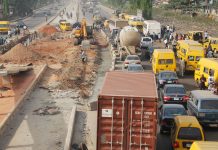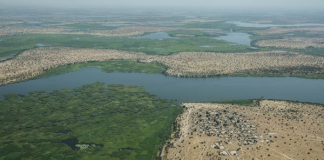Massive afforestation programs in the northern states of Nigeria are believed to be rapidly transforming barren lands to arable lands, reducing the impact of the desert and enhancing the socio-economic lives of the people who make up over 40 percent of the country’s population.
According to Prof. Nasiru Idris, Dean, Faculty of Environmental Science, Nasarawa State University, Keffi, the programs have recorded appreciable positive impact at various levels of their implementation. The improvement of the livelihood of the rural people through increased forest products supply has been noted, fuel-wood and poles supply has also increased and this has gone a long way in creating employment for the rural dwellers. In his research on “the Role of Afforestation Programs in Combating Desertification in Northern Nigeria”, Prof. Idris recognised milestone achievements of tree-planting efforts in the region, which he noted, had been spearheaded by the federal government with states and donor agencies including the World Bank, making immense contributions.
Prof. Idris, who has been a strong voice in environmental advocacy in Nigeria, however said that a lot still needs to be done to protect the region from the rapidly encroaching desert that threatens about 35, 000 hectares of land annually. In his words, “Despite attempts made by government and the international community at checking desert encroachment through afforestation, desertification still remains the most pressing environmental problem in the dry areas of the country. The visible sign of this phenomenon is the gradual shift in vegetation from grasses, bushes and occasional trees, to grass and bushes; and in the final stages, expansive areas of desert-like sand”.
According to the environmental expert, “The worsening problem of desertification is quite glaring as an estimated area of between 50% and 75% of Adamawa, Bauchi, Borno, Gombe, Jigawa, Kano, Katsina, Kebbi, Sokoto, Yobe, and Zamfara States in northern Nigeria are affected by desertification and are particularly vulnerable to wind erosion. These states, with a population of more than 50 million people account for about 43 % of the country’s total land area”.
Prof. Idris explained that “In the arid and semi-arid zone of northern Nigeria there is widespread land degradation, mainly attributed to deforestation. Increasing agricultural intensity and livestock over-grazing, combined with increasing demands for fuel wood have led to a rate of deforestation estimated to be 3.5 per cent, one of the highest in the world”. According to the environmental expert, the federal and state governments should not relent in their efforts to check the situation.


















